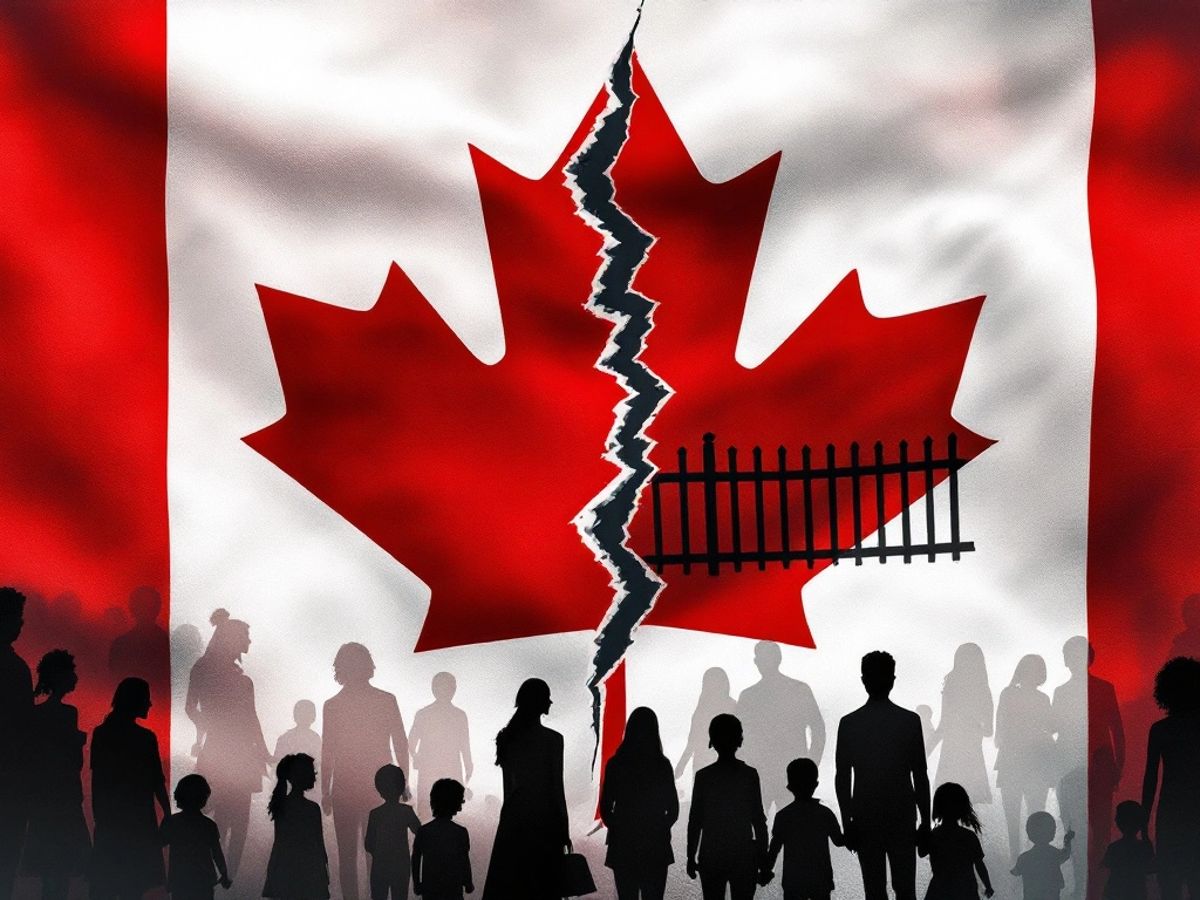Child Welfare
Trudeau’s Immigration Policy U-Turn: A Response to Polling Pressures

Canadian Prime Minister Justin Trudeau has made a surprising shift in his immigration policy, reducing the number of new permanent residents allowed into the country. This decision comes as his Liberal Party faces declining polling numbers, with growing public sentiment against high immigration levels.
Key Takeaways
- Trudeau’s government will cut immigration numbers by 21% over the next three years.
- The new targets are 395,000 for 2025, 380,000 for 2026, and 365,000 for 2027, down from 485,000 in 2024.
- The decision is influenced by public concerns regarding immigration and its impact on social services.
- Trudeau emphasises the need for a balanced approach to immigration, citing the importance of stabilising population growth.
Background
In recent years, Canada has seen a significant increase in its population, reaching 41 million in April 2024, up from 37.5 million in 2019. This rapid growth has led to increased pressure on housing, healthcare, and social services, prompting Trudeau to reassess his immigration strategy.
The Prime Minister acknowledged the challenges faced by the government in managing immigration levels, stating, "In the tumultuous times, as we emerged from the pandemic, between addressing labour needs and maintaining population growth, we didn’t get the balance quite right."
New Immigration Targets
The revised immigration targets for the next three years are as follows:
| Year | New Permanent Residents |
|---|---|
| 2025 | 395,000 |
| 2026 | 380,000 |
| 2027 | 365,000 |
This marks a significant reduction from the previous target of 500,000 new permanent residents for both 2025 and 2026. Trudeau’s government aims to create a more sustainable immigration system that can better accommodate the needs of existing residents.
Political Implications
The Liberal Party currently trails the opposition Conservatives in the polls, with a recent Nanos poll showing support at 25% compared to the Conservatives’ 38%. This shift in immigration policy may be an attempt to regain favour with voters who are increasingly concerned about the implications of high immigration levels.
Some members of Trudeau’s own party have expressed doubts about his leadership, with 24 out of 153 legislators signing a letter urging him not to seek a fourth term. As the federal election approaches, the pressure is mounting for Trudeau to demonstrate effective governance and responsiveness to public concerns.
Challenges Ahead
Canada is currently grappling with a surge in asylum seekers, particularly from Mexico and Haiti, leading to an $822 million crisis as shelters in major cities become overwhelmed. The government has faced criticism for its handling of the situation, with reports indicating that immigration officials have approved fewer visas this year.
Trudeau’s new immigration plan aims to address these challenges by stabilising population growth and ensuring that social services can adequately support both new and existing residents. As the political landscape continues to evolve, the effectiveness of this policy shift will be closely monitored by both supporters and critics alike.
Sources
-

 Blockchain Technology4 days ago
Blockchain Technology4 days agoBlockchain Beyond Cryptocurrency: 5 Game-Changing Applications You Should Know
-

 Business6 days ago
Business6 days agoDow Jones Drops Over 100 Points Amid Trade Talk Uncertainty
-

 Business5 days ago
Business5 days agoStock Futures Soar as US-China Trade Talks Yield Positive Results
-

 Business6 days ago
Business6 days agoU.S.-China Tariff Negotiations Resume Amid Economic Uncertainty
-

 Fitness & Wellness3 days ago
Fitness & Wellness3 days agoAre Smartwatches Worth It? The Best Wearable Tech of 2025
-

 Government7 days ago
Government7 days agoU.S. Government Launches Self-Deportation Incentive Program for Unauthorized Immigrants
-

 Government5 days ago
Government5 days agoU.S. Government Intensifies Scrutiny of Social Security Notices Amid Funding Concerns
-

 Child Welfare6 days ago
Child Welfare6 days agoTrump’s Controversial Refugee Policy: Afrikaners Welcomed Amid Global Ban














